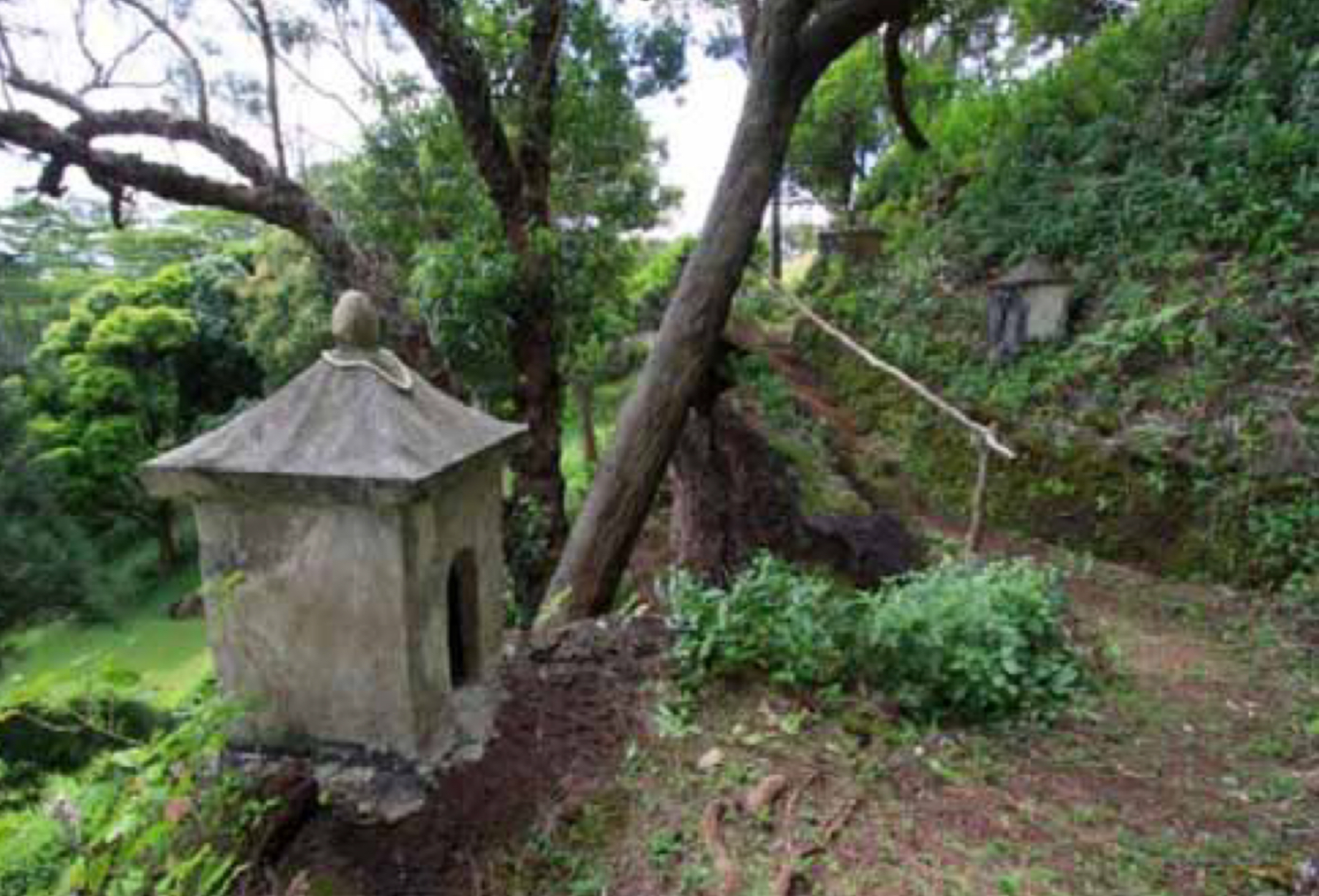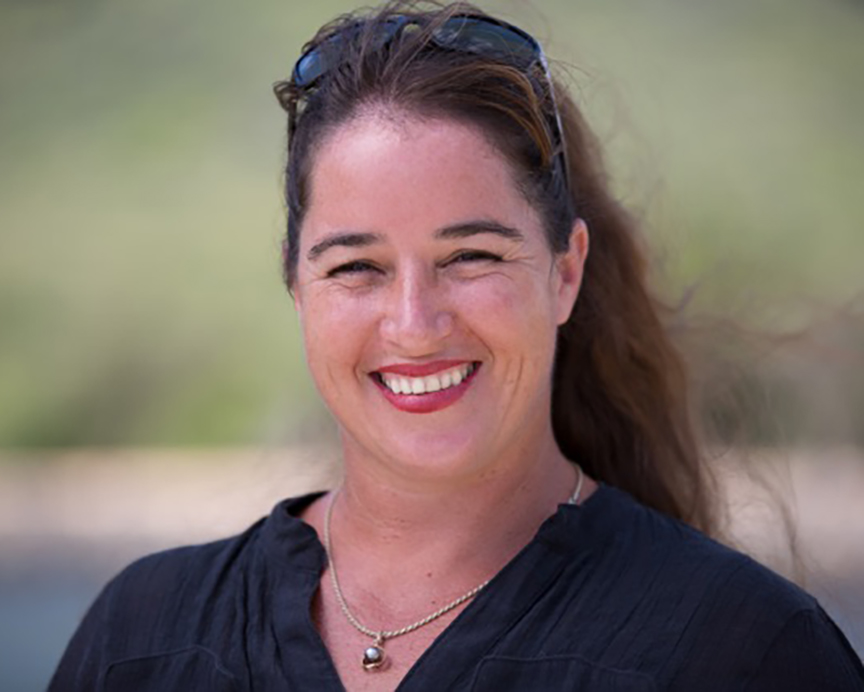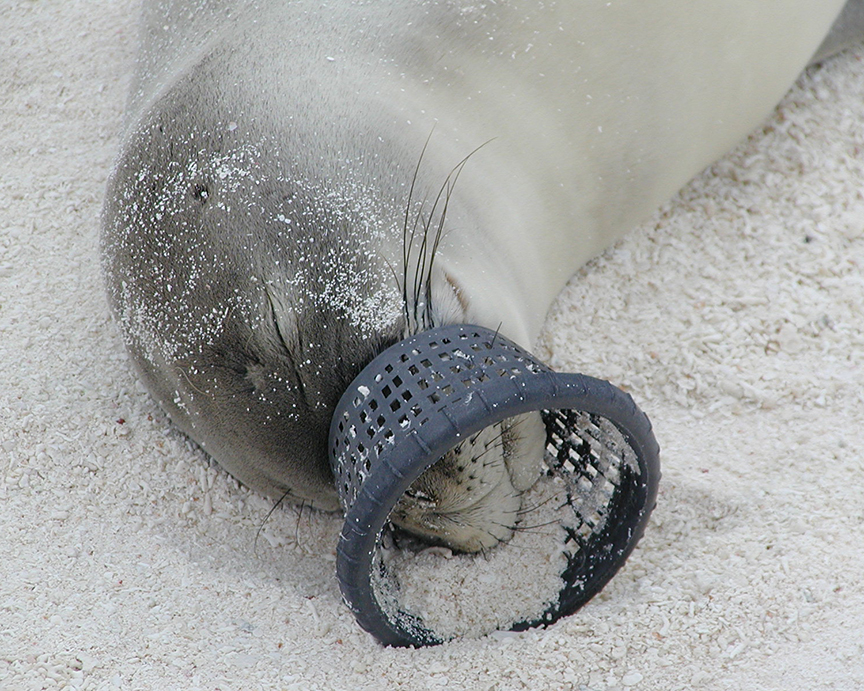By Léo Azambuja

Left to right, Maliē President Puka Tai Hook, Maliē Executive Director Maka Herrod and musician Lady Ipo Ferreira. Photo by Léo Azambuja
Almost 40 years ago, a visionary Hawaiian musician and kumu hula had a dream about an original music competition. He sat on that vision for a couple years, before telling his musical partners about it. What happened next was the birth of a festival that continues to push the envelope on the evolution of Hawaiian culture to this day.
This year’s Mokihana Festival will honor its founder, Nathan Liberato Kahikolu Kahape‘a Kalama, or just “Uncle” Nathan, who passed away July 19. He was 73 years old.
“It’s to celebrate his life, and he already picked out his scriptures. He planned everything. We’re just following what he wrote down as best as we can to celebrate him,” Lady Ipo Ferreira said of this year’s Mokihana Festival.
The Mokihana Festival is usually held on the last full week of September, according to kumu hula and Maliē Foundation Executive Director Maka Herrod. The festival was first held in 1984, and over the years it has grown from one event, a composers contest, to several events spread throughout several days. It raises money for Hawaiian language scholarships and Hawaiian groups.
In 1982, the vision of a composers contest came to Kalama through a dream. But it would take him two years before he would propose the idea to the other two members of his music band Maliē, James “Ekolu” Panui and Larry Keli‘i Duhaylongsod. Kalama’s vision was that the festival had to be unique, something no one else was doing.
And then they went to work on it, organizing the first Mokihana Festival in 1984.

Mokihana Festival this year will celebrate the life of musician and kumu hula Nathan Kalama, who passed away July 19. Contributed photo
Without a penny in his pocket, Kalama went to KUAI 720 radio station to ask for airtime. He lied about having $300, but he was laughed at because the joke was on him; even if he had the money, it wasn’t enough to buy decent airtime. The station management, however, was fond of Kalama’s idea, and committed to sponsor the festival with insurance.
The rest somehow worked out: Mayor Eduardo Malapit donated the War Memorial Convention Hall for the venue, and the Hasegawa Komuten Relations Board (from Kaua‘i Beach Resort) donated the $300 Kalama said he had. Larry Rivera and Art Umezu joined some of Kalama’s friends from O‘ahu to judge the contestants.
“Larry (Duhaylongsod) made all the trophies, so we didn’t have to buy trophies. He shaped and designed them. All the trophies were made with things from the ocean. That was a good time that we had,” said Ferreira, a professional musician who has been helping with the festival since the beginning.
That very first festival attracted less than 50 people and generated a $5 profit. But it was considered a success; Kalama had said if they made a profit, he would bring the festival again the following year. Since then, the Mokihana Festival has been held uninterrupted every year. Not even Hurricane ‘Iniki in 1992 or the COVID-19 pandemic in 2020 stopped it. Last year, despite restrictions related to the pandemic, the festival was held with participants across the globe — on a streaming platform. And the pandemic restriction wasn’t even the toughest part; Kalama was streaming from a hospital room.

The Maliē musical trio, left to right, Larry Duhaylongsod, James ‘Ekolu’ Panui and Nathan Kalama. Contributed photo
“Last year, Uncle (Nathan) was in the hospital, so I got him to be on video. It was really good,” Herrod said.
Ferreira said while Kalama broadcast from the hospital, she and the rest of the crew were broadcasting from a condo in Hanalei.
“We had people chiming in from around the world with their hula presentation, it was wonderful,” Ferreira said.
The original purpose for the contest was to raise funds for Hawaiian language scholarships, something that Kalama really loved, according to Herrod. Over the years, the nonprofit organization Maliē Foundation was established to organize the festival and distribute the scholarships.
Maliē President Puka Tai Hook said that today, the funds raised by the nonprofit are also open to Hawaiian groups or projects. But the scholarship funding remains core to the festival’s purpose.
“His last breathing words were, ‘Don’t forget the scholarship,’” Ferreira said of Kalama, laughing.
The nonprofit was fittingly named Maliē because it was the name of the original Hawaiian music band consisting of Kalama, Panui and Duhaylongsod. Ferreira and kumu hula Dana “Kauai‘i‘iki” Olores were some sort of unofficial members of the Maliē band, performing with them every now and then.

Nathan Kalama, center, is seen here with his first hula student, Kaua‘i‘iki Olores, who passed away in 2019, and long-time friend and colleague Lady Ipo Ferreira. Photo by Léo Azambuja
“We were the other two of Maliē,” Ferreira said of herself and Olores.
With the recent passing of Kalama, Ferreira is now the only surviving member of that group; Olores passed away in 2019, and Panui and Duhaylongsod passed away many years ago.
That first Mokihana Festival in 1984 was also quite a learning experience for everyone involved.
“Before, it was just, ‘Hey, let’s have a concert, and let’s have composers contest,” Ferreira said. “Maliē consisted of Ekolu, Larry and Nathan, and they were all composers, they were all dancers, and they were all creative in many different parts. They were all singers, they were all musicians.”
They didn’t know what went behind organizing a concert, such as insurance, publicity, or securing a venue and permits, Ferreira said. The Mokihana Festival was their first formal attempt at having a concert.
“They were learning as they went. But to Nathan, it was a success. And then the composers contest was a big thing throughout all the years,” Ferreira said.
Two years after the first Mokihana Festival, Kalama, also a kumu hula, added hula dancing to the festival. Then, every year the festival would grow, with new events and additional days. Growing up during the Hawaiian Renaissance, Kalama understood well the value of perpetuating his native culture. He also understood how a culture evolves over time, and during his life, he was an advocate for experimenting new things. So, he would usually bring something unusual to the festivals, such as a hula competition that you would get more points for using completely unconventional elements.

Musician and kumu hula Nathan Kalama is seen here with his halau. Contributed photo
“He just wanted everybody to have as much joy as he found in collaboration and music and being creative and really thinking out of the box,” Ferreira said. “Because we have to stay in the box, you’ve got to color in the lines most of your life. And he came to a point where, ‘I no need coloring no box. I’m gonna glitter up. I’m gonna film everything. I’m gonna document everything. I’m gonna get people involved. And if they don’t like it, it’s okay, I know gonna get people who like it.’”
Kalama remained quite active until the end of his life. He was known for quotes such as “only Nathan can” and “gas and go.” Ferreira said if you say those things, people know right away you knew Kalama.
His famous “gas and go” quote means that when you are running out of energy, you just “gas and go” and keep going.
“Towards the end of his life, he was gassing and going a lot to continue to put himself out there in the crowd,” Ferreira said. “He was still writing. He was going through his things, his music library, things he wrote that still have to be compilated and put all together, hundreds and hundreds of songs, his recordings, and he just put out a tip of the iceberg.”
Kalama passed away July 19, 2021. Herrod said his service will be at the festival, when his life will be celebrated for an entire week. Ferreira said they are getting calls from all over the world from people wanting to be a part of it.
“The world is changing, and Nathan saw the world changing. But he could still be Nathan Kalama, and his music is going to live on,” Ferreira said.
This year’s Mokihana Festival will be held at Sheraton Kaua‘i Coconute Beach Resort at Waipouli from Sept. 19-25. Visit www.maliefoundation.org for a complete and updated schedule of events.
- Update: The organizers of the Kaua‘i Mokihana Festival have told us the festival will be postponed. The Kaua‘i Mokihana Festival is now scheduled for Nov. 28 to Dec. 4. We will post an update if there are any further changes. We apologize for any inconvenience it may have caused.
Discover more from ForKauaiOnline
Subscribe to get the latest posts sent to your email.














Leave a Reply